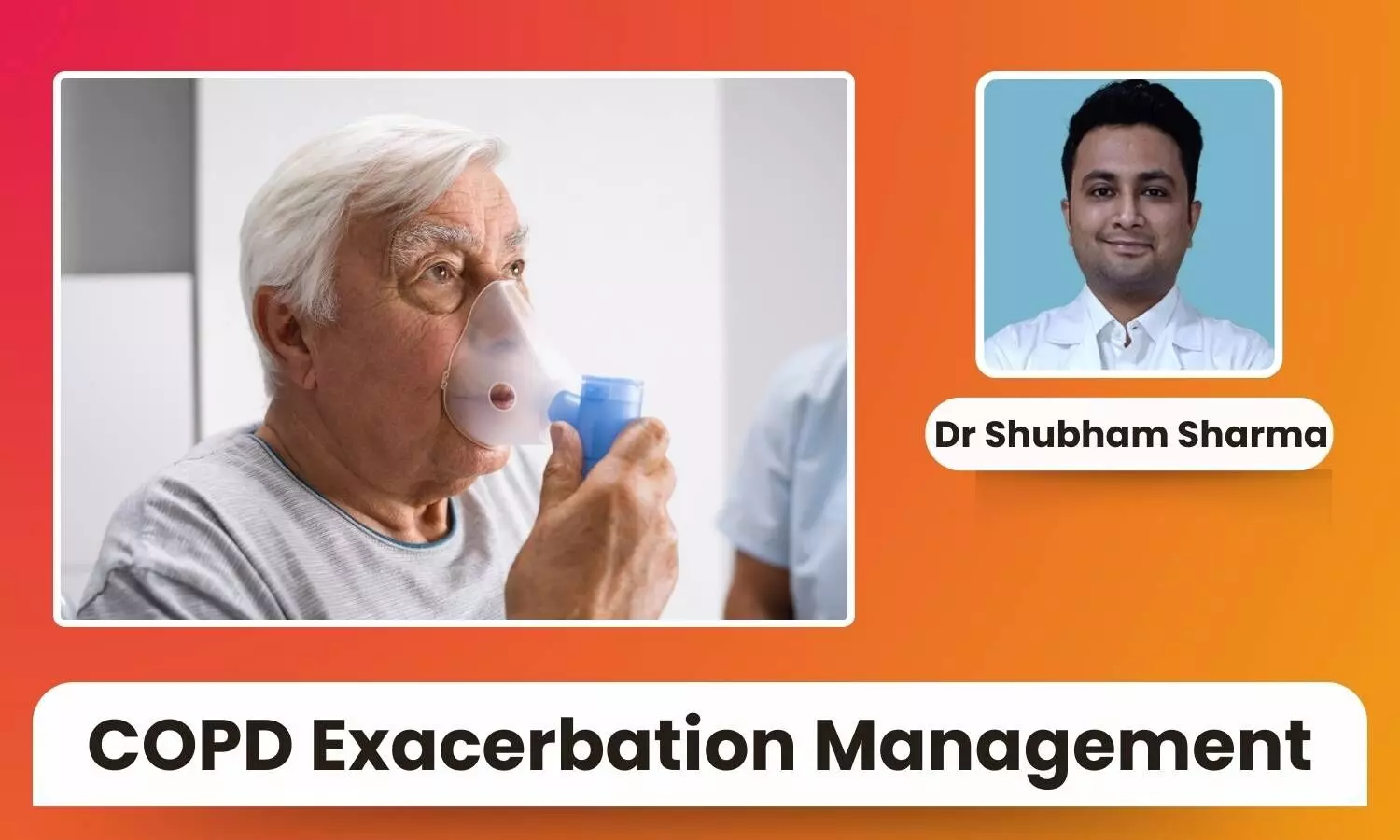COPD Exacerbation: Tips for Patients to Prevent and Handle Flare-Ups - Dr Shubham Sharma

For people with COPD, flare-ups or exacerbations are periods when symptoms worsen, often requiring urgent medical attention. These episodes can be alarming and disruptive but can also be managed with the right strategies.
COPD patients can benefit from understanding how to prevent exacerbations and what steps to take during flare-ups. Here, we’ll discuss effective methods to prevent and manage exacerbations for a better quality of life.
COPD Exacerbation
A COPD exacerbation refers to a sudden worsening of symptoms like shortness of breath, coughing, and wheezing. Exacerbations can be triggered by various factors, including respiratory infections, air pollution, extreme temperatures, and stress. Recognizing triggers and knowing how to respond when symptoms intensify is key to avoiding hospitalizations and managing health.
Tips for Preventing COPD Exacerbations
1. Avoid Known Triggers: Environmental irritants, like smoke, dust, and strong fumes, are major exacerbation triggers. COPD patients should avoid smoky areas, use air purifiers at home, and wear masks when necessary to reduce exposure. Awareness of air quality can also help COPD patients plan outdoor activities.
2. Stay Active with Safe Exercise: Exercise may feel daunting for COPD patients, but low-impact activities like walking or yoga can improve lung function and overall health. Staying active also helps prevent muscle weakness, which can further contribute to shortness of breath. Consult a physician to establish a safe exercise routine.
3. Stay Up-to-Date on Vaccinations: Infections, especially respiratory ones, are a leading cause of exacerbations. Annual flu shots and pneumococcal vaccines are recommended for COPD patients to reduce infection risk. Infections can quickly lead to severe flare-ups, making preventive measures critical.
4. Practice Good Medication Adherence: COPD medications, including inhalers and oral drugs, play a vital role in preventing exacerbations. Consistency with medication helps manage symptoms and reduce the frequency and severity of flare-ups. Following the prescribed regimen and attending regular check-ups can help ensure medication is working effectively.
5. Monitor Symptoms Regularly: Using a COPD diary or mobile app to track symptoms can help patients recognize any changes early. This proactive monitoring allows patients to adjust their activity levels or seek medical help promptly when necessary. For instance, noticing an increase in mucus production or more frequent coughing can prompt early intervention.
COPD Exacerbations During Flare-Ups
Even with preventive measures, exacerbations can occur. Having a personalized action plan is essential for patients to feel confident in managing symptoms and reducing flare-up severity. A COPD action plan, developed with a healthcare provider, typically includes:
- Quick-Relief Medications: Using a rescue inhaler can relieve sudden symptoms. Patients should have their inhaler on hand and know how to use it correctly during flare-ups.
- Emergency Contact Information: Patients should list contact numbers of healthcare providers and emergency services. Immediate access to support is crucial if symptoms rapidly worsen.
- Clear Steps for Symptom Management: An action plan outlines steps to take when symptoms intensify, including breathing techniques, positions to ease breathing, and medication adjustments if recommended by a healthcare provider.
Importance of Self-Care and Support Networks
Living with COPD can be challenging, but having a support network and maintaining good self-care practices can make a difference. Support groups, either in-person or online, can provide emotional support and practical advice on managing COPD. Caregivers, friends, and family members can also assist during exacerbations by helping with daily tasks or providing transportation to medical appointments.
In summary, managing COPD exacerbations involves preventive strategies, symptom awareness, and a proactive approach to flare-ups. With the right plan and support, COPD patients can reduce the impact of exacerbations and live with greater confidence and comfort.


